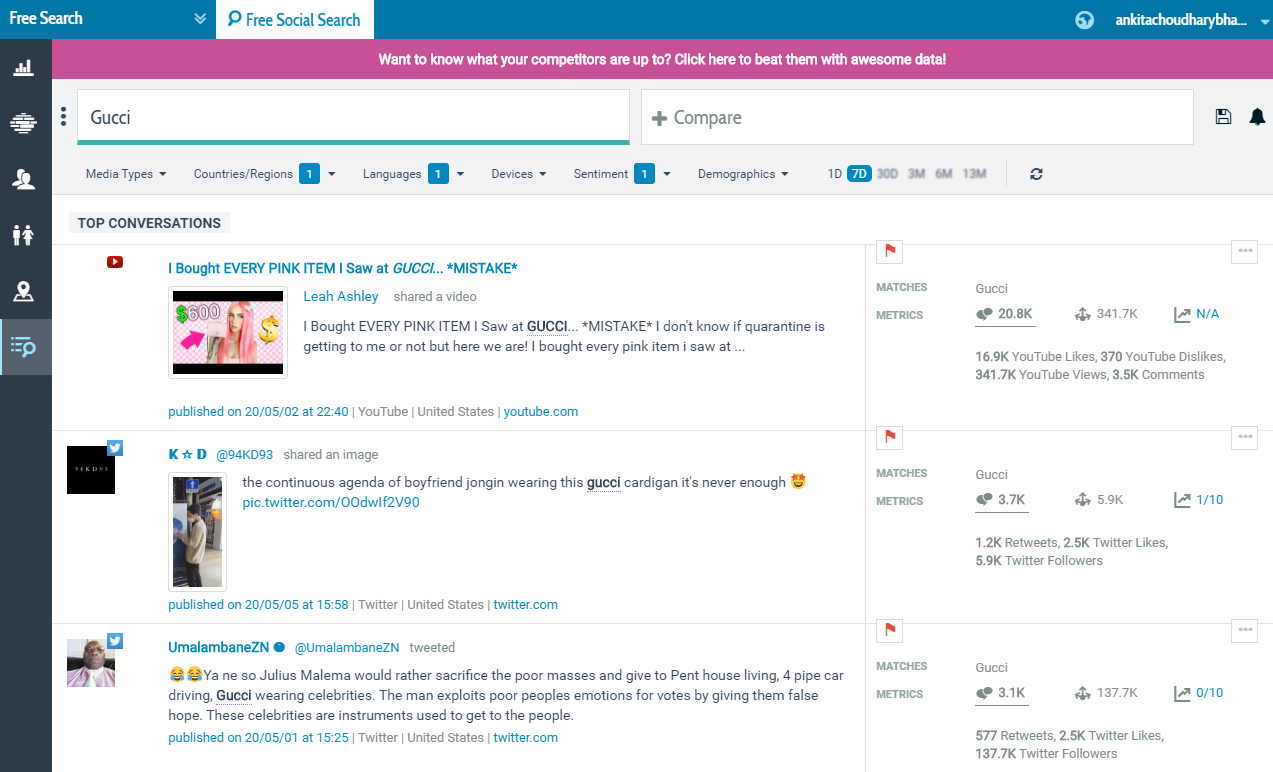In today’s ecosystem, online reputation plays a crucial role in business. A bad online reputation can affect buyer decisions, long-term sales and severely damage the company’s brand equity. Online reputation management has thus become a crucial activity for businesses to protect their growth and success.
Before we delve deeper into how to manage your online reputation, we must first understand what online reputation is and how it impacts businesses.

With the emergence of social media and the multitude of forums, customers have received a new voice. Unlike traditional media, where brands indulged in one-way conversations, the web allows conversations from both sides. It empowers users to voice their opinion. While it has helped companies understand customer behaviors and manage their expectations better, companies have no power over what and where customers talk. Leaving comments, reviewing latest products, and posting on social media has become the new norm.
This new form of communication has changed the way companies work. Businesses need to be open to feedback and criticism if they wish to succeed in this landscape. Addressing criticism openly, without being defensive is key to a successful engagement strategy.
In this blog, we will discuss the various scenarios that could hurt your online reputation and ways to manage them effectively. For better understanding, I have categorized 5 key areas of online reputation management:
- Review sites: Industry specific and generic review sites that allow users to express their opinion on your products/services exists on the internet. Depending on your industry, one or more review sites can be crucial to your business. Amazon Customer Reviews, TripAdvisor, Yelp, Glassdoor, Trustpilot are a few examples of the different types of review sites.
- Hate sites: Sometimes brand haters go beyond negative reviews and create websites to express their displeasure towards your company. Haters come up with creative names like “Brand name + sucks” to defame a company. Such websites could contain false information.
- Online media channels: Online media coverage impacts brand reputation. All major newspapers, magazines and broadcasters have their online platforms. In addition to this, the internet has given rise to independent journalists and media. The combination of negative online news and social media is like a wildfire.
- Social media platforms: Customers often use their social media accounts to both talk positively and rant about brands. Writing a post/status update, commenting on company posts, mentioning in comments of other posts; there are various ways in which customers talk about products and services on social media.
- Independent blogs and websites: Influencers and independent websites play a major role in creating or pulling down your online image. It is common for people to check what influencers and websites with topical authority are saying about your product before making a purchase.
Now that we have an understanding of the key aspects and areas for managing online reputation, let’s look at effective ways to do this.
Monitor your brand
The most important part of online reputation management is brand monitoring. The first step in devising a strategy to manage or improve your online presence is to understand what people are talking about you online. For this, you can use Talkwalker Free Social Search. It is a free tool that helps you track your hashtags and keywords across blogs, news channels, forums, and social media. You can filter your results based on geography, language, sentiment, demography and more. You can also see individual conversations/posts and sort them based on potential reach or engagement. Here is an example of a search I ran on Talkwalker Free Social Search:

Take feedback into account
It is important to acknowledge and address legitimate customer feedback. If several customers are complaining about certain product features, it is imperative to act fast and improve your product. Communicate with people online and assure them that you are working on it. This will improve your brand reputation as future customers will notice that you take feedback seriously and act upon it.
Be transparent
If there is an issue, it is important to address it openly. Acknowledge the problem online and assure your customers that you are fixing errors/problems. Instead of deleting negative comments, reply to them. Customers trust companies that are open and transparent.
Respond quickly
Timing is very important in the online world. It takes a few moments for a small issue to turn into a social media crisis. Responding quickly is essential to keep matters under control. If you want to read more on social media crisis management, check out my blog.
Stay away from arguments
Having open conversation with customers is a great idea. But sometimes, conversations can turn into arguments. There is no point in pursuing a conversation that will not bring positive results. If you feel that the user/customer is being argumentative, you should ask for their contact information and reach out on a private platform.
Pay attention to Google search
Run a search for your brand name and industry keywords on search engines and monitor the results on a regular basis. Potential customers can use search engines to investigate products and brands. If they see negative comments and news on the first page, they might not even bother to visit your website. You should devise a SEO strategy that helps display good and positive content about your company, either through owned channels or via third party channels.
Act against hate sites
Hate sites are created to damage your reputation. The makers of such sites can conceal their identity and might be virtually untraceable. In such a scenario, it is advisable to take help from skilled online experts. Analysts and experts can carry out cyber investigations to identify such attackers and remove hate sites.
Fight back illegitimate reviews/claims
If you feel that certain reviews make false claims about your company, you should fight to get them removed. If reviews contain inappropriate language or defamatory statements, your company can take a legal action to get this removed.
Learn from failures
All of your marketing campaigns and product launchers cannot be a success. The idea is to learn from your mistakes and not repeat them again. Create extensive documentation for all campaigns. Refer to these documents before launching your next marketing campaign. This will help you avoid repeating mistakes.